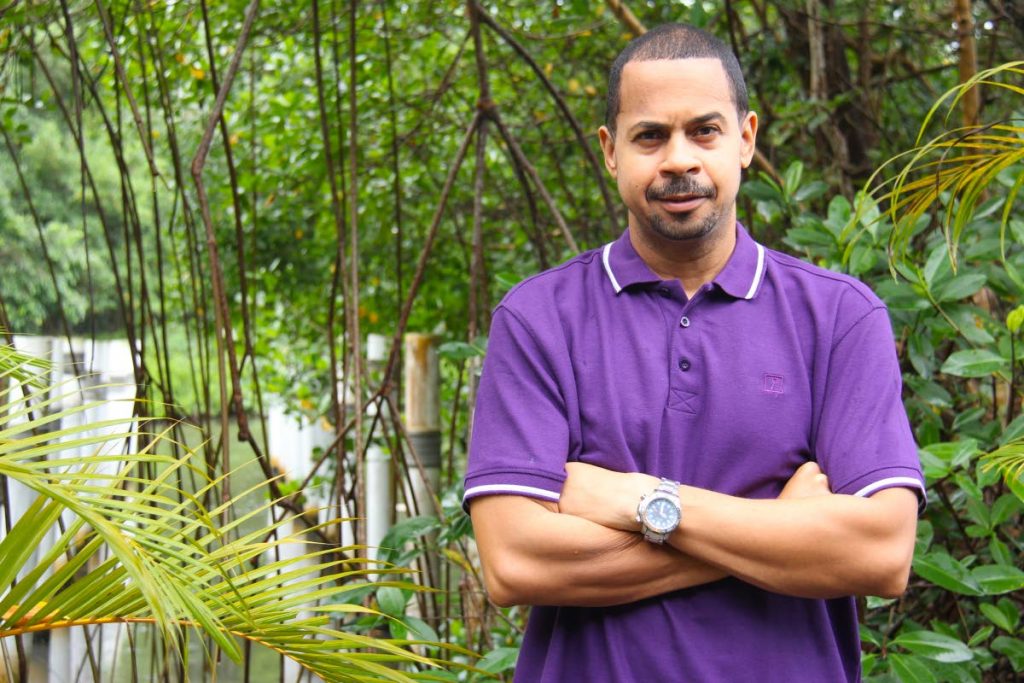Sleight of hand in mixed messaging

FOR PEOPLE not infatuated with the “buck” story that launched a thousand memes, there was the decidedly less titillating Paria Fuel Trading Company Ltd story. Granted, reports swirling around talk of an impending sale of the newly formed company weren’t nearly as giggle-worthy as the seemingly imperishable appeal of a rampaging buck. The Paria saga, however, and its main cast are more menacing to the national interest than even the most libidinous buck under the bed.
The Government’s expert on “fake news” (interpret that as you will) Stuart Young swatted down a story suggesting the gavel had already fallen and that Paria had been sold to some shadowy Bajan outfit. In denouncing the information as false, Young insisted this fiction was yet another desperate attempt by the Opposition to mislead the population.
The Government is correct to dispel rumour disguised as established fact. It should be noted, however, that fake news promulgated by a few mischief-makers online doesn’t obviate legitimate concerns members of the public have about the fate of this months-old company.
Young was happy to hang what he rubbished as false reporting around the neck of the Opposition. The Government may want to consider that the online posts of UNC activists aren’t always endorsed by the Opposition any more than, say, the erudite videos of PNM activist Darryl Dookoo represent the views of the Government. Right?
Doggedly myopic, this administration continues to dismiss anyone with dissenting views or questions on governance as opposition trash-talkers. This is dangerously arrogant in a quasi-democratic society. It’s difficult for adherents of political cultism to accept there are people who can examine issues objectively, without the taint of political loyalties. That’s the mistake politicians continue to make, believing everyone thinks the way they do.
The Government has also failed to appreciate that the environment of mixed messaging it has created breeds confusion. As it happens, confusion is the perfect substrate for fake news and conspiracy theories.
Hopefully, no member of this cabinet is surprised by prevailing scepticism over what’s to become of Paria. The Petrotrin bacchanal and all its attendant screw-ups and chicanery were, after all, just last November. The wound is still fresh and along comes last-man-standing Wilfred Espinet with more salt.
As chairman of the Trinidad Petroleum Holding Company (TPHC), Espinet said the company was keen to sell Paria. Energy Minister Franklin Khan swiftly countered this revelation. He stated unequivocally, “The divestment of the entity is not within the current mandate by the Government of Trinidad and Tobago to the Trinidad Petroleum Holding Company.”
He further stated TPHC has been instructed to retract or withdraw any advertisement or request for proposals “inadvertently issued for the sale of the Paria Fuel Trading Company Ltd.”
Khan then equivocated somewhat when responding to questions on the subject before the Senate. He clarified that the company was not for sale and then unclarified it again by adding that it will be “leveraged” in negotiations with any prospective buyers of the oil refinery. The head-scratching public is left to assume that “leveraged” has the same meaning as “opportunity attention.” Remember that one?
Let’s wind the clock back a bit. Former Petrotrin chairman Wilfred Espinet was, for a time, the main spokesman updating the public on the shutdown of the oil company. On September 4, 2018, Espinet was quoted as saying there was no plan to privatise the refinery. He was subsequently quoted thusly: “The plant would be mothballed and if someone wants it, it will be there.” Wink wink.
You may also recall the number of workers bound for the breadline kept changing until everyone was booted out of their jobs. The atmosphere shrouding Paria bears a striking similarity to the Petrotrin debacle. People desperately trying to read the play can’t see what the conjurers are doing behind the fog of misinformation and misdirection.
Again, a jumped-up population is being scolded into place with the same language used in the Sandals affair: “sensitive stage,” “international investors,” “confidential negotiations” and all this. What the Government seems unaware of is, it’s not the head of a household telling petulant children what’s best, “so hush yuh mout!”
TT is not a company, but a country. The Paria Fuel Trading Company Ltd belongs to the people, not the Government. If its sale is in the best interest of the country then so be it, but we’ve had enough of the smoke and mirrors.

Comments
"Sleight of hand in mixed messaging"